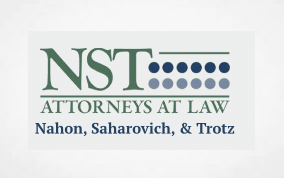Becoming the recipient of a coveted CAURD license is an extraordinary opportunity that can bring joy and excitement to Justice-Involved individuals who have been impacted by the previous criminalization of cannabis. It can also leave new licensees wondering what steps to take next.
In an effort to help CAURD licensees commence their operations, the Prince Lobel Cannabis Team has put together a description of six issues that every CAURD licensee should address in order to successfully and efficiently launch an adult-use retail dispensary.
1. Commercial Contracts
Commercial contracts are an integral part of any business and are crucial to a successful CAURD launch. Unfortunately, they can also be complicated and confusing. CAURD licensees will be required to enter numerous contracts before commencing operation, potentially including a potential Pop-Up License, Lease Agreement, Labor Peace Agreement, Vendor Contracts, and Website Design Agreements.
CAURD licensees choosing to accept a retail location provided by the Dormitory Authority of the State of New York (DASNY) will be required to execute a lease agreement. The lease agreement must be with an entity affiliated with DASNY, in which the licensee becomes a subtenant of the provided retail location.
CAURD licensees are required to enter a Labor Peace Agreement, a contract between the licensee and labor representatives. Under these agreements, licensee must agree to be neutral during any potential union efforts, while the union organizers agree to not strike or otherwise disrupt the employer’s business operations.
Vendor contracts are also critical. New York State allows CAURD licensees to purchase cannabis and cannabis products from distributors on credit. However, all agreements to purchase cannabis on credit must be reported to the Office of Cannabis Management (OCM) with the terms of payments and credit. The OCM may invalidate any agreement that it deems commercially unreasonable or where it suspects discriminatory pricing practices.
Finally, the New York Social Equity Cannabis Investment Fund (Cannabis Fund) may not be able to finance every purchase that a CAURD license needs to make. Therefore, CAURD licensees may need to enter financing agreement with third parties in order to raise necessary working capital for their dispensary.
Lending agreements and other financial contracts involving cannabis, which remains federally illegal, are highly specialized and require specific disclosures. Basic forms found online likely will not adequately protect CAURD licensees’ interests when entering credit agreements. Prince Lobel’s attorneys can review CAURD licensees’ commercial contracts and lease agreements as well as help them draft lending agreements and other financial documents.
2. Executive Recruitment & Compensation
Employees are the backbone of every company. CAURD licensees will need to build a competent team of experienced individuals to be successful in the cannabis industry. CAURD licensees should develop an organizational chart that outlines key C-suite Executives (i.e., chief executive officer, chief operating officer, chief financial officer, etc.) as well as a staffing plan that designates critical management staff (i.e., general manager, floor manager, inventory intake manager, etc.) and other retail floor employees (i.e., bud tenders, cashiers, greeters, etc.). CAURD licensees should begin considering how to fill these essential roles and the appropriate compensation and benefit packages for each position.
Further, CAURD licensees should familiarize themselves with New York State labor law, including unemployment insurance obligations, day of rest and meal period requirements, mandatory paid periods, and overtime compensation rules.
Prince Lobel Strategic Advisors can help pair CAURD licensees with experienced cannabis industry executives to help fill their C-suite. Further, Prince Lobel’s attorneys can assist CAURD licensees with drafting executive compensation packages and employment contracts as well as non-compete and non-disclosure agreements. Prince Lobel can also help provide trainings on how to remain compliant with the nuances of NYS labor law.
3. Employee Training Manual
CAURD licensees are responsible for the actions of their employees, as any violation committed by an employee within the scope of their employment is considered a violation committed by the licensee. Thus, every CAURD licensee must ensure that their employees possess the necessary education and training to perform their duties in compliance with New York law, regulation, and guidance.
CAURD licensees are required to train all employees within 30 days of being hired. The employee training comprises a minimum curriculum involving subjects ranging from the history of cannabis use, prohibition, and legalization, to compliance with and operation of inventory tracking systems. Further, every CAURD licensee must maintain a written Employee Training Manual covering such topics as worker guidelines and security, operating and safety procedures, and information about the types of cannabis products that the dispensary sells.
While there is no shortage of top-notch talent coming from out of state, the legacy market, and other educational and mentorship programs, the overall success of any dispensary will come from the quality and comprehensive scope of the licensees’ Employee Training Manual and employee training.
Prince Lobel’s attorneys can help CAURD licensees draft an Employee Training Manual that is compliant with the Office of Cannabis Management’s (OCM) regulations and guidance and particular to the unique needs of their business and staff.
4. Standard Operating Procedures
Standard Operating Procedures (SOPs) are the vital organs to every cannabis dispensary. SOPs essentially cover every operational course of action that occurs in a dispensary, ranging from opening and closing procedures to inventory and quarantine procedures.
While numerous cookie-cutter SOPs can be found online, CAURD licensees should make sure that their SOPs are compliant with New York law, regulations, and guidance. An SOP must also be tailored to the site plan of the licensed premises and the needs of the licensee’s business to ensure that the dispensary runs smoothly and effectively.
Prince Lobel’s attorneys can assist CAURD licensees with drafting and reviewing a site-specific and legally compliant SOP.
5. Intellectual Property Protection
Successful branding and marketing are key components for any company, especially in a highly competitive market like cannabis. A CAURD licensee must ensure that its most valuable asset—intellectual property (IP)—is protected.
Intellectual property encompasses everything from a company’s patents and trademarks to its copyrights and trade secrets, including its business name, logos, designs, mottos, and website domains. Consequently, the merit of CAURD licensees’ intellectual property and the strength of their IP protection will have a significant effect on the value and success of their businesses. CAURD licensees should ensure that their IP and brands are adequately protected.
Prince Lobel’s attorneys can make sure that licensees’ business names and branding do not infringe on registered marks in order to avoid unwarranted and costly cease and desist actions. Further, our team of IP attorneys can help CAURD licensees register their business name, logos, designs, mottos, and website domains for New York State trademark protection to ensure that their IP is protected from unauthorized uses and infringements.
6. Marketing and Advertising Regulations
Marketing and advertising go hand-in-hand with a company’s IP and are crucial to the success of any company. While the purpose of every company’s marketing team is to exercise its creative skill and artist expertise to increase brand likeness and awareness, New York regulators have established strict rules regarding the marketing and advertising of cannabis businesses that significantly limit how licensees can engage consumers.
New York State’s cannabis marketing and advertising rules impose rigorous regulation on the time, place, and manner of cannabis advertisements, including required warnings and support services information, interior signage requirements, and restrictions on exterior signage, as well as prohibitions on making any health claims, using commercial mascots, passing out handbills, and advertising at sporting venues, video game arcades, shopping malls, and fairs that receive state allocations.
CAURD licensees and their marketing teams should become familiar with all state law, regulation, and guidance related to the marketing and advertising of adult-use cannabis businesses and/or consult experienced legal counsel to ensure compliance with all marketing and advertising rules.
Prince Lobel’s attorneys can review CAURD licensees’ marketing materials to ensure that they contain all necessary warnings and are compliant with law, regulation, and guidance. Additionally, Prince Lobel can provide training on these subjects for CAURD licensees and their marketing teams.
Prince Lobel Tye LLP, with offices in Boston and New York, has helped hundreds of cannabis establishments across New England commence operations, including the first medical cannabis dispensary in Boston and the first adult-use retail dispensary in Massachusetts, and recently played a key role in the launch of Smacked LLC – New York’s first Justice-Involved and for-profit adult-use retail dispensary.
Prince Lobel’s attorneys look forward to helping more CAURD licensees successfully launch their dispensaries in the near future. If you need assistance commencing operation of your Conditional Adult-use Retail Dispensary, please feel free to reach out to these members of our experienced Cannabis Team:
For CAURD questions: David C. Holland, James K. Landau, or Andrew Schriever
For Commercial Contracts and Financing: John Bradley, Max Riffin, or Douglas Trokie
For Executive Recruitment & Compensation: John Bradley, James K. Landau, Andrew Schriever, or David C. Holland
For New York Employee Training Manual: David C. Holland, James K. Landau, or Andrew Schriever
For Standard Operating Procedures: David C. Holland, James K. Landau, or Andrew Schriever
With thanks to Dalton Battin for his assistance on this alert.



































